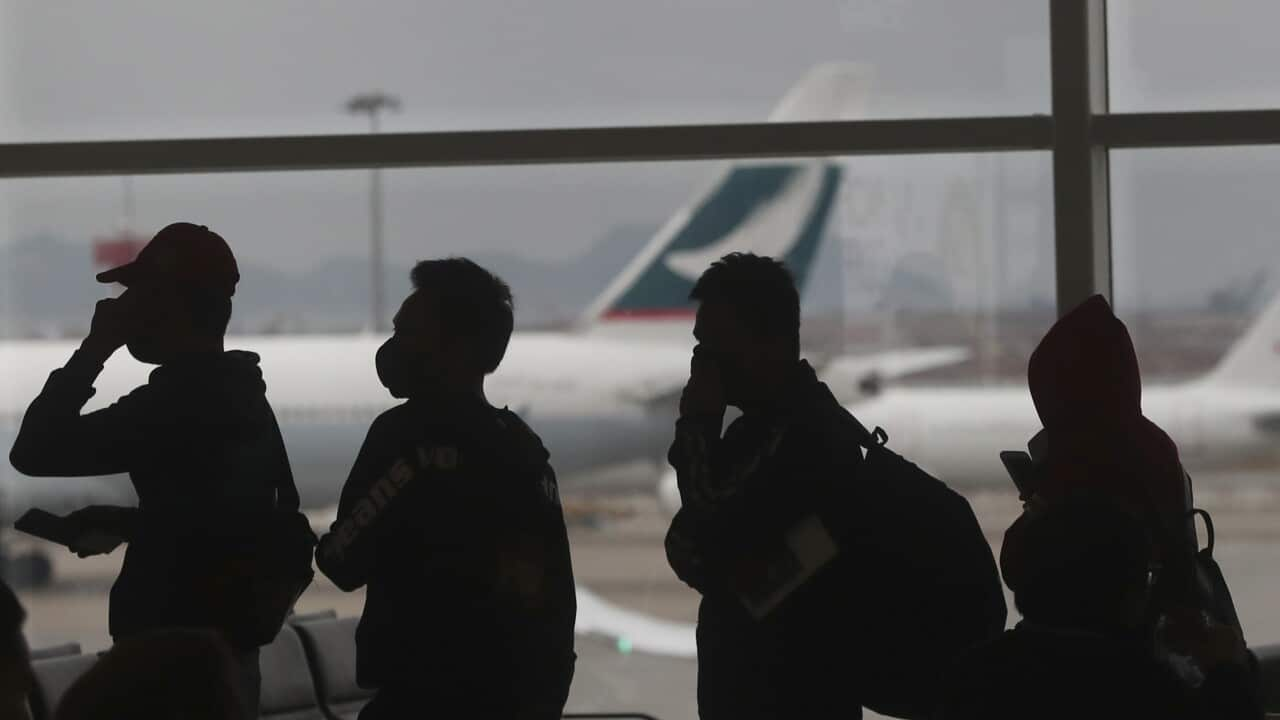Highlights
- There has been a 13-fold increase in the number of expressions of interest by Hong Kong applicants for Global Talent visas, according to FOI data.
- Processing expressions of interest for global talent visas by mainland Chinese applicants was 50 per cent slower than the previous financial year.
- Hong Kong is losing its general skilled workers, not only those who are eligible for Australia’s Global Talent scheme, at the highest rate since the 1997 handover to China from British rule
Eldon Li was prepared to spend $1.5 million on an Australian investment visa until he found out about the Global Talent Independent scheme (GTI), which not only saved him money but time.
It took the tech talent from Hong Kong less than six months to obtain the GTI visa, otherwise known as the global talent visa and the fastest way to permanent residency in Australia, in line with the federal government’s goal of attracting the territory’s “best and brightest”. The home affairs department has been giving processing priority to Hong Kong passport holders following the passing of Hong Kong’s security laws on June 30 last year, which handed significant power to mainland China.
The home affairs department has been giving processing priority to Hong Kong passport holders following the passing of Hong Kong’s security laws on June 30 last year, which handed significant power to mainland China.

Eldon Li applied for permanent residency in Australia through the GTI program this year. Source: Supplied
From data obtained by SBS Chinese under the Freedom of Information (FOI) Act, it’s now clear how many expressions of interest (EOI) for global talent visas were received from Hong Kong passport holders and how long it has taken for Australian authorities to process them in comparison to mainland Chinese applicants.
Expressions of interest substantially fast-tracked for Hong Kong passport holders
According to FOI data, GTI visa processing times for Hong Kong passport holders accelerated over the past financial year, while it slowed down for applicants from mainland China.
Over 1,000 Hongkongers submitted an EOI using the global talent form, a 10-fold increase from the previous financial year. The department also received 1,483 EOIs from mainland China nationals, which represents only a three-fold increase from last year.
The department also received 1,483 EOIs from mainland China nationals, which represents only a three-fold increase from last year. As Hong Kong’s autonomy becomes increasingly under threat, its residents have looked to find new places to call home.
As Hong Kong’s autonomy becomes increasingly under threat, its residents have looked to find new places to call home.

Number of EOIs received and processed for Global Talent visa subclass 858 from Hong Kong applicants. Source: Home Affairs

Number of EOIs received and processed for Global Talent visa subclass 858 from residents of Mainland China. Source: Home Affairs
According to a survey by the Hong Kong Public Opinion Research Institute in August, one-fifth of the 6,981 people polled had plans to emigrate.
The public opinion survey found just over half of the respondents have no confidence in Hong Kong’s political future and their future freedoms, while 42 per cent had no confidence in the territory’s economic prospects.
Under the national security laws, crimes such as “collusion with foreign forces” are punishable by life imprisonment, while actions such as damaging public transport can be considered terrorism.
More than 10,000 people have been arrested in connection with the 2019 unrest and anyone charged with a crime in Hong Kong can effectively be tried in mainland China under the law.

Australia has opened new immigration routes for Hong Kong residents following the 2019 pro-democracy protests. Source: AP/Kin Cheung
Hong Kong losing its skilled workers to Australia
Hong Kong residents currently residing in Australia on student or temporary skill visas can apply for an additional five-year extension, in addition to any time already spent here.
Data published in the Home Affairs Department's 2020-21 Migration Program Report shows there were 4,312 visas granted to applicants with a Hong Kong citizenship, up from 1,391 in the previous year.
This was also the highest figure over the past 25 years and greater than the two years prior to Hong Kong’s handover from British to Chinese rule, when there were only around 3,500 Australian visas granted annually between 1996 and 1998.
Hong Kong is now ranked eighth among the top citizenship country of applicants who have been granted a visa.
From the skilled stream, there were 3,265 applicants with Hong Kong citizenship who were granted a visa, also the highest in the past 25 years.
This shows Hong Kong is losing its general skilled workers, not only those who are eligible for Australia’s Global Talent scheme, at the highest rate since the 1997 handover.
Hong Kong potential migrants on the lookout for opportunities
Image
Mr Li gave up on a business he had spent years establishing in Hong Kong because he no longer felt its political environment and living conditions were suited to his children.
“I can see Hong Kong’s school environment has already changed. Students now must face mainland China and learn about the national security law. The old Hong Kong was global and students learnt about multiculturalism,” he says.
Jacky Yau also found his Australian immigration pathway through the global talent visa program.
The Yuen Long 721 incident, one of the most defining moments of the 2019 Hong Kong pro-democracy movement where a mob of masked men attacked passengers in a local subway station, was a trigger point for Mr Yau.
“I never thought something like this would occur in Hong Kong. I don’t accept such incidents happening in Hong Kong. I have children and decided they will not be raised in Hong Kong but someplace else. My first preference was Australia,” he says. Three months after the 721 incident, Mr Yau applied for a global talent visa.
Three months after the 721 incident, Mr Yau applied for a global talent visa.

Video still showing confrontation between masked assailants and protesters at Yuen Long train station on July 21, 2019. Source: Lam Cheuk-ting via AP
His EOI was approved in three days and three months after, he obtained his permanent residency.
Mr Yau had been engaged in the FinTech and IT security industries for more than 20 years prior to the move.
“I thought I’d give it a go and put down my work experience in Hong Kong and the Asia-Pacific region as well as my international awards when I applied. Fortunately, my application was successful and approved quickly,” he says.
Processing times down for Hongkongers, up for mainland Chinese
Authorities approved EOI submissions from Hong Kong applicants applying for the Global Talent visa within 24 days, down from 35 last year.
In contrast, the number of days it took to process applicants from mainland China increased from 112 to 169 days.
The sectors with the fastest EIO turnaround times for Hongkongers were energy, and agri-food and ag-tech, with turnaround times for 15 or 16 days on average respectively. Roles in resources, defence, advanced manufacturing and space had a 17 to 19-day average turnaround time.
Roles in resources, defence, advanced manufacturing and space had a 17 to 19-day average turnaround time.

The average number processing days of EOI for global talent visa processing days by sector. Source: Home Affairs
Once an EOI has been submitted, the Department of Home Affairs will invite applicants to apply for their visa.
For Hong Kong citizens, visas were generally approved in 74 days, down from 90 days in the previous financial year.
The same process was 35 per cent slower for applicants from mainland China, with the number of days required for approval increasing from 40 to 54 days.
According to the department’s website, 75 per cent of global talent visas for all applicants are approved within 73 days, and 90 per cent are approved within three months.
For Hong Kong and mainland Chinese applicants, roles in education were the fastest to be approved (46 and 48-day average respectively).
The number of visa processing days for infrastructure and tourism professionals from mainland China was almost five times faster than those from Hong Kong.

The average number for Global Talent visa processing days - from application to approval by sector. Source: Home Affairs
Requirement for mainland Chinese applicants getting higher
Australia has 15,000 allocated global talent visas, triple the amount from the previous year.
But immigration lawyer Simon Wu does not think applicants have an increased chance of obtaining a GTI visa.
“The tripling of the quota does not mean they will all get used up, nor does it mean the requirements to apply will be reduced,” he says.
As an executive of a well-known multinational fund in Shanghai in mainland China, Lesley Zhang submitted her EOI application for a GTI visa in December 20 and is still waiting for an official response.
“I initially expected to wait three to six months. It’s now beyond that and feels like I’m waiting for buddha,” she says.
Mr Wu believes that as more people learn about the GTI visa, the greater the competition for the limited allocated spots.
Australia becomes the new home for sought-after talent
Global talent visa applicants must be able to prove they can attract an annual salary of more than $153,600.
Once they’ve passed the strict criteria and obtained permanent residency, Australia then becomes home to people like PhD scholar Felix Zeng from mainland China. The engineer fell in love with Australia’s living environment while studying at the University of New South Wales.
The engineer fell in love with Australia’s living environment while studying at the University of New South Wales.

GTI successful applicant Felix Zeng says applying for his Australian visa was very fast and smooth. Source: Felix Zeng
“I’m more of an introvert. I think the living conditions here are suited to me,” he says.
Mr Zeng says his experience applying for Australia permanent residency last year was swift and smooth.
“The home affairs department aren’t robots. They do communicate with you and give you advice,” he says.
Mr Wu says the GTI visas are mainly for two groups of people, one for scientific researchers such as doctors and post-doctoral fellows, and the other for corporate IT experts and the like.
“Regardless of whether the applicant is from one of the 10 sectors listed by the immigration department, they need to have excellent professional ability and be able to prove they have developmental value in their field in this country,” he says.


